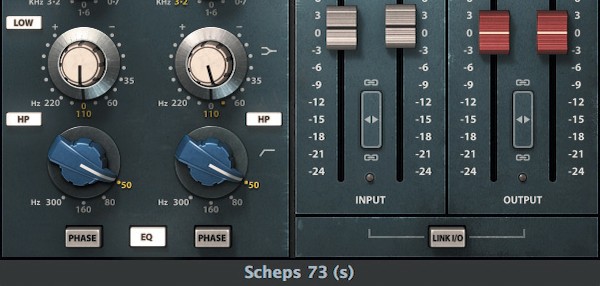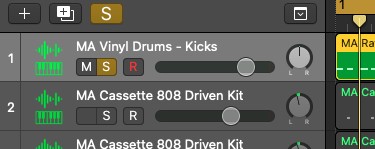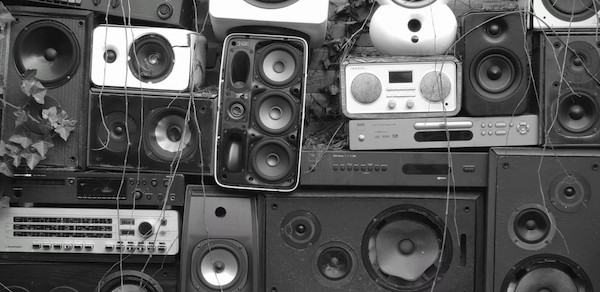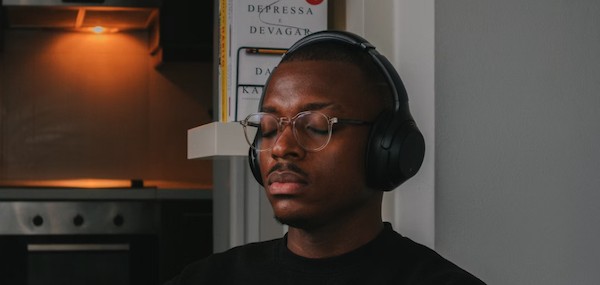
When it comes to mixing your music, it can be easy to get lost in the torrent of often conflicting advice found in the many books, tutorials and Youtube videos on the subject.
A big part of my job with the ModeAudio Magazine is to wade through this digital detritus and dig up the genuine nuggets of useful information, reporting back what I find for you here.
Today’s article falls precisely into this category - it’s time for me to gleefully admit that, having spent many a moonlit hour trawling through the depths of Youtube’s ever-growing dustbin of mixing know-how, I’ve found myself becoming a fully fledged devotee to the mixing wisdom of one Andrew Scheps.
I’d like to summarise just a few of my absolute favourite of Andrew’s tips for you here, which though small in total quantity, are nevertheless positively gargantuan in terms of the impact they will have on your music production technique, I can assure you!
Let’s dive in before first finding out just a little about the recording engineer and mixing legend.
Who Is Andrew Scheps?
Andrew Scheps first came to my attention, as I’m sure he did for many who swim in the more electronic side of the music production pool, via his collaborations with audio plugin behemoth Waves, such as the Scheps 73 EQ and preamp plugin.

I knew that this guy must know his stuff well enough if a titan of the industry like Waves wanted to release signature plugins bearing his name, so I decided to find out more - in fact, Andrew Scheps has been working in the music and recording industry for well over 30 years, mixing Grammy Award-winning records for the likes of Red Hot Chili Peppers, Metallica, Beyonce and more.
He also gives talks on mixing technique and has been interviewed many times on the topic, resources which I have come to find pretty well invaluable in relation to my own philosophy and approach to production in general.
It is these videos and lectures that I have drawn upon to glean the advice I will share with you below, but I heartily advise you to search his name in Youtube and soak up as much of his knowledge and experience as you can!
Mixing Tip 1: Listen To The Full Mix, Not Solo Instruments
Let’s kick things off with a maddeningly simple, yet criminally overlooked piece of advice from Mr Scheps - you should only ever mix in relation to the sound of the full track, and not a single instrument or sound in isolation.

I know I’m not the only producer in the world that has spent what feels like hours tweaking away at various plugin parameters on a single drum or synth sound, fine-tuning the thing to death, only to disengage the solo button and find that it sounds terrible in the context of the full mix!
This gets to the very heart of what the art of mixing is all about - it’s about balance, and not about making every individual element sound as good as it possibly can.
For example, the ‘perfect’ or archetypal snare sound has lots of body at around the 200Hz mark, plenty of crisp, snappy energy at 2kHz and a decent dose of rattling presence, brightness and air up into the 5kHz and above region.
However, pair this with the wrong synth sound or vocal part and suddenly you’re pulling attention away from the lead melody of your song, or muddying up the low end of an important guitar part - in other words, the snare sound only works and makes sense as a unit among many, within the wider context of the full mix.
Mixing Tip 2: It’s Ok To Only Use Plugins
This tip was another huge eye-opener for me when I first heard it emerge from Andrew’s mouth in the above video - you simply don’t need expensive gear to produce professional mixes.
Of course fancy studio gear can and indeed has been used to create fantastic sounding mixes for many decades now, but that doesn’t mean they’re the only route to doing so!
In fact, Andrew has spoken about how he has taken the above maxim to an extreme - he now exclusively mixes “in the box”, using only digital plugins to achieve his mixing goals.
To hear that a Grammy-winning engineer had found it perfectly permissible to completely forgo outboard hardware was a bit of a revelation to me, as I’m sure it will be to any budding bedroom producer out there, lacking the funds and time required to track down and purchase studio-grade analog equipment.

Mixing Tip 3: Check Your Mix Through Different Speaker Setups
Now, this tip is hardly a new one but it’s so important that it bears repeating here - make sure to check your mixes on setups other than your main studio speakers or headphones.
It’s important to note that this advice is being stressed by a mixing engineer rather than someone concerned with mastering, as this wisdom is more commonly associated with those finalising a track before it is released into the world rather than at the mix stage.
I also like this tip because it again exposes the importance of using bad or cheap gear as a fundamental part of the production process - your mix might absolutely slam out of your nice studio monitors in your acoustically treated room, but if it doesn’t work as effectively out of your car speakers or earbuds, what chance does it have of resonating with the average listener?
So, by all means, work up your mixes in your studio space but if it isn’t checked against different or inferior listening environments, you really don’t know how it’s going to sound when it makes its way into the ears of of your audience.
Mixing Tip 4: How A Mix ‘Feels’ Is More Important Than Its Sound
For me, Andrew Scheps’ mixing philosophy is so refreshing because he foregrounds the experience of the listener and consumer, rather than the wishes of the artist or even his own journey as an audio engineer.
This tip speaks squarely to this ideological framework, and is something that can really only be grasped at in the throes of doing the actual work of mixing, rather than simply reading or thinking about it - the way a mix feels when you’re listening to it is much more important than how it actually sounds!
Of course, the way something sounds is intrinsically linked to the way it makes you feel, but the point Andrew is making here is that there are tracks out there that have been recorded poorly, with bad equipment and are out of balance from a mix stand-point, and yet somehow, against all the odds, are still able to conjure great affect in the listener.

The recent rise of retro-themed genres such as Synthwave and the LoFo aesthetic in general, as encountered in genres such as LoFi House, LoFi Hip Hop and beyond, are testament to this idea - these genres covet distortion, noise and overall sonic murkiness, which are typically the precise elements the mixing engineer is tasked with avoiding or reducing.
In other words, the next time you’re thinking about mixing down a track of yours, perhaps it’s better to be guided by questions such as “how does the chorus make me feel?” when you listen to it, rather than “how good does the chorus sound?”
Mixing Tip 5: What Comes Out The Speakers Is The Only Thing That Matters
The final piece of Andrew’s mixing advice that I’d like to share with you today is almost a summary of all the other tips combined, namely that when it comes to mixing, or indeed any aspect of recording and production music, the only thing that matters at the end of the day is what comes out of the speakers.
What this means is that the actual process of how you achieve your mix or create your music means nothing to the listener; all they get is a stream of sound, more than likely produced from a digital source, entering their ears and (hopefully) having some sort of effect on their emotions.

So, the next time you find yourself doing something simply because you think that’s how a professional mixing engineer would do it, try to take a step back and think again - does this actually improve my mix? Will it make the music more affecting for the listener?
The point is really to have the listener in mind at every stage, and of course, even in your role as mixer, you’re a listener yourself, arguably even one of the most important listeners of the song in question, because you can change the way it sounds and feels before it goes out to the wider public.
Use this power wisely when it next comes time to mix some music, just as Andrew Scheps does. Until next time, get creative!












